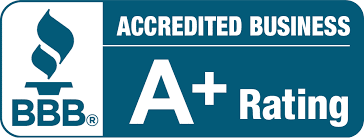Welcome to our comprehensive guide on the Inflation Reduction Act and its implications for homeowners. As industry experts, we understand the importance of staying informed about legislative changes that can impact your financial well-being. In this guide, we will provide you with a detailed overview of the Inflation Reduction Act, its key provisions, and how it may affect you as a homeowner. Let’s dive in!
Understanding the Inflation Reduction Act
The Inflation Reduction Act is a recent piece of legislation that aims to address the impact of rising inflation rates on the economy and individual households. It introduces various measures to mitigate the financial strain caused by inflation and ensure the stability of homeownership. Here are some important aspects of the act that you should be aware of:
1. Mortgage Relief Programs
The Inflation Reduction Act introduces new mortgage relief programs designed to assist homeowners facing financial hardships due to inflation. These programs provide relief through reduced interest rates, loan modifications, and refinancing options. By taking advantage of these programs, homeowners can alleviate the burden of increasing mortgage payments and maintain the stability of their homes.
2. Tax Incentives for Energy-Efficient Upgrades
To encourage energy efficiency and reduce the long-term costs of homeownership, the Inflation Reduction Act includes tax incentives for energy-efficient upgrades. Homeowners who invest in qualifying improvements, such as solar panels, insulation, or energy-efficient appliances, can benefit from tax credits and deductions. These incentives not only help homeowners save money on their energy bills but also contribute to a more sustainable future.
3. Affordable Housing Initiatives
Recognizing the importance of affordable housing in combating inflationary pressures, the Inflation Reduction Act allocates resources to support the development of affordable housing initiatives. This includes funding for low-income housing projects, rent stabilization programs, and assistance for first-time homebuyers. These initiatives aim to make homeownership more accessible and affordable, especially for those facing financial constraints.
4. Inflation-Indexed Mortgages
Another significant provision of the Inflation Reduction Act is the introduction of inflation-indexed mortgages. These mortgages are designed to protect homeowners from the adverse effects of inflation by adjusting interest rates and loan terms in line with the prevailing inflation rates. This innovative approach ensures that homeowners’ mortgage payments remain sustainable and shielded from the negative impacts of inflation.
Implications for Homeowners
Now that we have covered the key provisions of the Inflation Reduction Act, let’s explore the specific implications it has for homeowners like yourself:
1. Financial Stability
By implementing mortgage relief programs and incentivizing energy-efficient upgrades, the Inflation Reduction Act aims to provide homeowners with enhanced financial stability. Reduced mortgage payments and tax benefits enable homeowners to allocate their resources effectively and manage the impact of inflation on their household budgets.
2. Long-Term Cost Savings
The tax incentives for energy-efficient upgrades not only help homeowners combat inflation but also lead to long-term cost savings. By investing in energy-efficient technologies and practices, homeowners can reduce their energy consumption, lower utility bills, and contribute to a greener environment.
3. Access to Affordable Housing
The affordable housing initiatives introduced under the Inflation Reduction Act play a crucial role in ensuring that homeownership remains within reach for individuals and families across different income brackets. These initiatives create opportunities for aspiring homeowners, reduce housing instability, and foster stronger, more inclusive communities.
4. Protection Against Inflation
With the introduction of inflation-indexed mortgages, homeowners gain protection against inflationary pressures. By tying mortgage interest rates and loan terms to inflation rates, homeowners can avoid the negative impact of rising inflation on their mortgage payments. This protection provides peace of mind and safeguards homeowners from potential financial hardships caused by inflationary spikes.
In conclusion, the Inflation Reduction Act brings several benefits and opportunities for homeowners. From mortgage relief programs and tax incentives for energy-efficient upgrades to affordable housing initiatives and inflation-indexed mortgages, this legislation aims to mitigate the challenges posed by inflation and promote financial stability for homeowners. By staying informed about the provisions of the act and exploring the available opportunities, homeowners can make informed decisions to protect their financial well-being and ensure the long-term sustainability of their homes.
Remember, the Inflation Reduction Act is a complex piece of legislation, and it is advisable to consult with financial advisors or experts in the field to fully understand its implications and how it relates to your specific circumstances. By taking advantage of the resources and opportunities provided by the act, you can navigate the challenges of inflation and secure a stable future for yourself and your home.
Contact Solergy today for more information.


